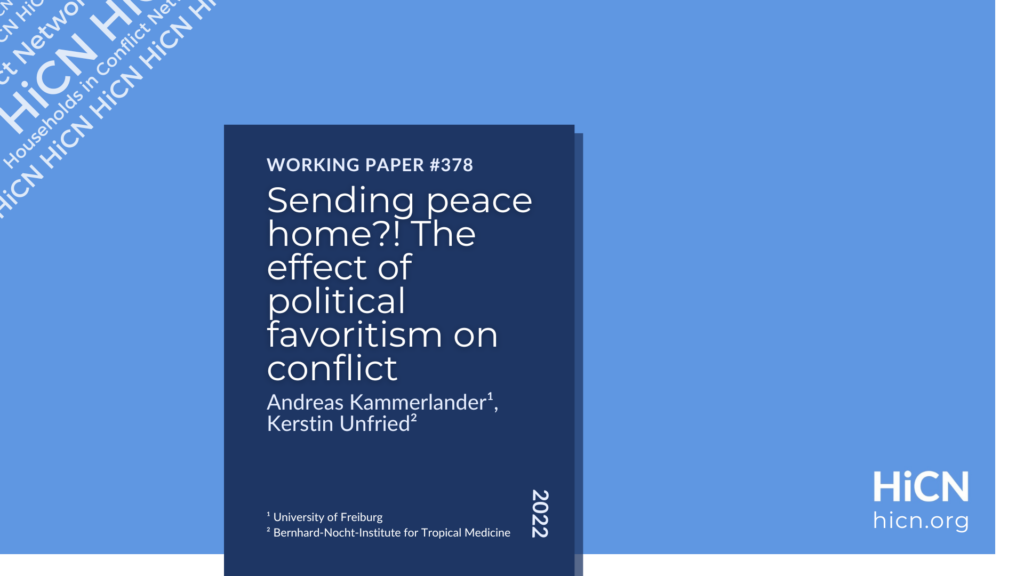
Bringing the model by Choi (2014) to a spatial context, we investigate and assess the link between political favoritism and internal conflict. In particular, we compare the difference in the likelihood and intensity of conflict between regions in which citizens reside that belong to identity groups of political leaders and others over time in a global sample.
Combining geo-coded conflict data with self-gathered information on the birthplaces and ethnic affiliation of 836 political national leaders and using a two-way fixed effects model with region and country-year fixed effects, we find that regions experience 10% fewer casualties while they constitute the birth region of the national leader in autocracies. We also find evidence for ethnic favoritism. Our analysis indicates that autocratic leaders use political favoritism (in armed forces) and other coup-proofing strategies to remain in power that reduce the intensity of conflict in their homelands.